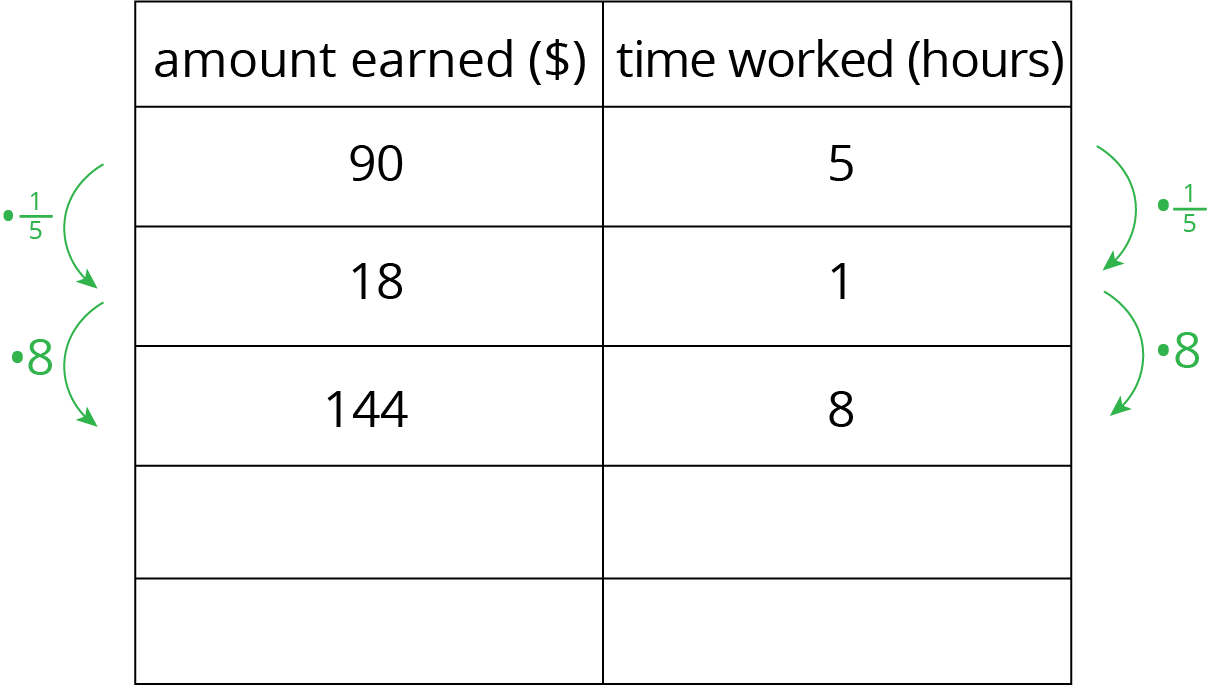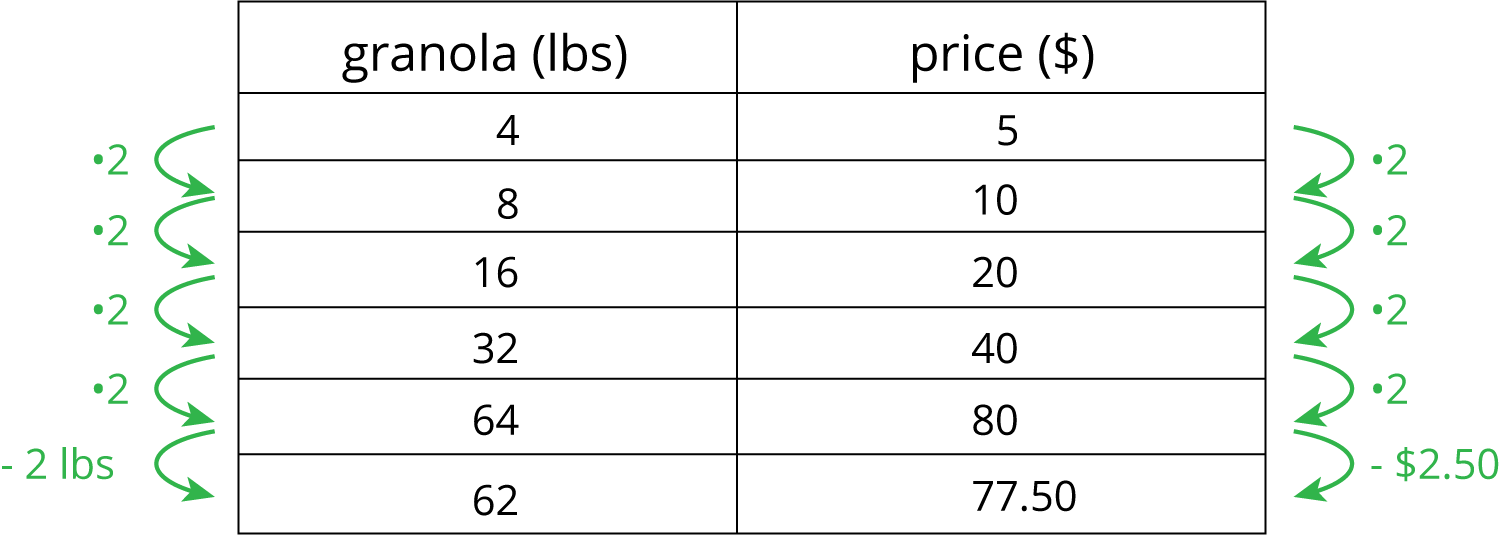Lesson 9
Navigating a Table of Equivalent Ratios
Let’s use a table of equivalent ratios like a pro.
9.1: Number Talk: Multiplying by a Unit Fraction
Find the product mentally.
\(\frac13\boldcdot 21\)
\(\frac16 \boldcdot 21\)
\((5.6) \boldcdot \frac18\)
\(\frac14\boldcdot (5.6)\)
9.2: Comparing Taco Prices
| number of tacos | price in dollars |
|---|---|
Use the table to help you solve these problems. Explain or show your reasoning.
- Noah bought 4 tacos and paid \$6. At this rate, how many tacos could he buy for \$15?
- Jada’s family bought 50 tacos for a party and paid \$72. Were Jada’s tacos the same price as Noah’s tacos?
9.3: Hourly Wages
Lin is paid $90 for 5 hours of work. She used the table to calculate how much she would be paid at this rate for 8 hours of work.

- What is the meaning of the 18 that appears in the table?
- Why was the number \(\frac15\) used as a multiplier?
- Explain how Lin used this table to solve the problem.
-
At this rate, how much would Lin be paid for 3 hours of work? For 2.1 hours of work?
9.4: Zeno’s Memory Card
In 2016, 128 gigabytes (GB) of portable computer memory cost $32.
-
Here is a double number line that represents the situation:

One set of tick marks has already been drawn to show the result of multiplying 128 and 32 each by \(\frac12\). Label the amount of memory and the cost for these tick marks.
Next, keep multiplying by \(\frac12\) and drawing and labeling new tick marks, until you can no longer clearly label each new tick mark with a number.
-
Here is a table that represents the situation. Find the cost of 1 gigabyte. You can use as many rows as you need.
memory (gigabytes) cost (dollars) 128 32 - Did you prefer the double number line or the table for solving this problem? Why?
A kilometer is 1,000 meters because kilo is a prefix that means 1,000. The prefix mega means 1,000,000 and giga (as in gigabyte) means 1,000,000,000. One byte is the amount of memory needed to store one letter of the alphabet. About how many of each of the following would fit on a 1-gigabyte flash drive?
- letters
- pages
- books
- movies
- songs
Summary
Finding a row containing a “1” is often a good way to work with tables of equivalent ratios. For example, the price for 4 lbs of granola is \$5. At that rate, what would be the price for 62 lbs of granola?
Here are tables showing two different approaches to solving this problem. Both of these approaches are correct. However, one approach is more efficient.
-
Less efficient

-
More efficient

Notice how the more efficient approach starts by finding the price for 1 lb of granola.
Remember that dividing by a whole number is the same as multiplying by a unit fraction. In this example, we can divide by 4 or multiply by \(\frac14\) to find the unit price.
Glossary Entries
- double number line diagram
A double number line diagram uses a pair of parallel number lines to represent equivalent ratios. The locations of the tick marks match on both number lines. The tick marks labeled 0 line up, but the other numbers are usually different.

- per
The word per means “for each.” For example, if the price is $5 per ticket, that means you will pay $5 for each ticket. Buying 4 tickets would cost $20, because \(4 \boldcdot 5 = 20\).
- same rate
We use the words same rate to describe two situations that have equivalent ratios.
For example, a sink is filling with water at a rate of 2 gallons per minute. If a tub is also filling with water at a rate of 2 gallons per minute, then the sink and the tub are filling at the same rate.
- table
A table organizes information into horizontal rows and vertical columns. The first row or column usually tells what the numbers represent.
For example, here is a table showing the tail lengths of three different pets. This table has four rows and two columns.
pet tail length (inches) dog 22 cat 12 mouse 2